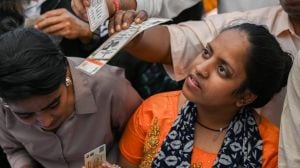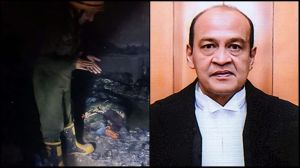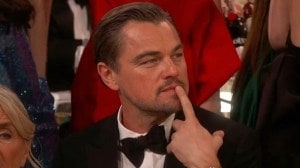Mr Fix-it Musharraf does it again
The recent bye-elections in several seats across Pakistan were fixed by the military establishment, according to most Pakistani press report...

The recent bye-elections in several seats across Pakistan were fixed by the military establishment, according to most Pakistani press reports and comments. Even the loss of a National Assembly seat by the nephew of the federal Information Minister seems to have followed a script.
With the ruling party losing a seat in Rawalpindi, next door to the capital Islamabad, the government thinks it can claim that the polls were free and fair. But the real fix in the bye-elections was aimed at eliminating the Pakistan Peoples Party PPP, leaving only the ruling Pakistan Muslim League Q and the religious alliance, the Mutahhida Majlis-e-Amal MMA as the main political groups.
The PPP emerged as the second largest group in parliament in the general8217;s election of October 10 last year. But since then, it has been the target of orchestrated defections and now another round of polls rigging.
The Pakistani establishment wants to limit the political arena to the centre-right and the extreme right as they do not pose a challenge to its authority, or so its leading members believe. The PML Q represents a politics of influence revolving round corruption and patronage that the generals have never minded since Ayub Khan created the Convention Muslim League as the Kings party during the 1960s. And the MMA is a convenient excuse for pursuing a several-track foreign policy, given its anti-American and militant agenda.
With all its weaknesses, the PPP still represents the only challenge to establishment domination. Its greatest folly in the last ten years has been its many efforts to transform itself into a party acceptable to the establishment. In emulating the Muslim League8217;s patronage-based model, the party alienated the idealistic progressive intelligentsia.
Allegations of corruption and a loose party structure have also been grounds for criticism of the PPP. The truth is, the party was never given a chance by either General Zia or his successors. Had the people of Pakistan, rather than the manipulators of the establishment, rejected the PPP, things would have been different.
The Pakistani military leadership8217;s aversion to the PPP is similar to that of the oligarchies in Latin America to the Leftist parties in their respective countries and to the consistent efforts by the Turkish military to keep any Islamic-oriented political party out of Parliament and power. Ironically, in several Latin American nations the parties detested by the oligarchs have eventually come to power. Turkey8217;s generals have to deal with a moderate party rooted in Islam, this time with an absolute majority in Parliament. Nations suffer less when the ruling oligarchies realise the long-term trends and voluntarily relinquish power.
Good governance is about allowing ordinary people the right to appoint and remove those that govern them. The British vice-regal system in India was based on the notion that the major decisions about choice of rulers could not be left to the illiterate natives.
Ayub Khan8217;s Basic Democracies, General Zia-ul-Haq8217;s Majlis-e-Shura and the present regime8217;s 8216;8216;devolution8221; scheme are all adaptations of the colonial patriarchal model. The people can choose BD members, councillors or Nazims but they are not allowed to elect or remove the Central governing authority in the country.
Small surprise, then, that even five months after elections, Pakistan8217;s new National Assembly has not started meeting regularly and the upper house, the Senate, has not even been elected.
Pakistan still faces uncertainty about what would happen after Musharraf.
His proclaimed hopes of creating a new breed of politicians while dispensing with the 8216;8216;old, discredited lot8217;8217; are unlikely to be fulfilled. If the objective of the exercise is to perpetuate the patriarchal notion of power then it will only continue to hold at bay the creation of a self-sustaining Pakistani democracy.
The new politicians will play ball with the establishment for a while and will then attempt to wrest real power some day. At that point, the establishment will be constrained to seek their overthrow again.
There has never been a normal transfer of power in Pakistan, which in turn breeds constant insecurity on the part of rulers and the ruled. In fact, the widespread corruption that everyone complains about is also related to this consistent insecurity. People stash away fortunes for a rainy day when they are not certain about when and how power and money changes hands. Instead of fixing elections to keep the people8217;s favoured politicians out, the military regime would do far better by negotiating those who cannot be defeated at polls without rigging.
Husain Haqqani is a Visiting Scholar at the Carnegie Endowment for International Peace in Washington. Write to him at hhaqqaniexpressindia.com
- 01
- 02
- 03
- 04
- 05































